- Home
- Newt Gingrich
1945 Page 4
1945 Read online
Page 4
"Lieutenant Commander James Martel, under the Espionage Act of 1941 you are hereby charged with delivering classified information to a foreign power. You are under arrest. You will be escorted back to the United States where you will face a military court martial. Prior to that court martial some people in my division want to have a long, long talk with you. A plane is waiting at Templehof." Grierson went to the back door of Acres's office and, with a bit of flourish, knocked on it. The door opened and two more men in civilian garb stepped in.
"Martel, these two men will escort us to the plane and back to the States. They have been ordered to kill you rather than let you escape, and believe me, should the occasion arise they will happily carry out that order."
Stunned, Jim looked back at Acres.
"Just cooperate, Jim. I'll get things moving on my end. You'll be cleared of this within a week, maybe two." In the long months to come James Martel would often recall that empty promise.
CHAPTER TWO
November 6 Reykjavik, Iceland
President Andrew Harrison sat in his high, straight-backed chair waiting for his undiplomatically tardy opposite number. As he stared into the fireplaces contained conflagration he unconsciously attempted to impose some sense of order on the flickering shadows capering before him, but he had no more success in that than he had ever had in imposing a pattern on the remarkable series of events that had led to this meeting and whatever would follow.
Hardly more than a year ago he had been the Junior Senator from Nebraska. Now he was President of the United States. To this day, that title—his title, President of the United States — still evoked the image of Franklin Delano Roosevelt, and no other. But when the Japanese surrendered and The Great Pacific War was won at last, FDR suddenly announced his retirement and as a last exercise of his extraordinary political power had virtually anointed his own successor. Andrew Harrison III.
Right now the sitting President wished that Franklin still had his old job. The whole world might pay a terrible cost for any mistakes made here today.
There were others, seemingly better qualified, that he could have picked, Harrison mused, but I was from the West and could corral our own New Isolationists, and maybe take a little wind out of the sails of the Western Republicans. Someone from Pennsylvania, Ohio, or Missouri just would not have fit the bill. And so here he was.
Fifteen minutes past three. Forty-five minutes late. It was deliberate of course, but annoying for all that. Before long he would have to take official notice.
To distract himself, and because it stirred a memory of another clock and another mantel, Harrison stood up and examined the clock over this one. Lincoln had his log cabin, he thought, and I my sod hut on the prairie. His campaign managers had made much of that during the '44 campaign: the farmer's son versus the slick New York City lawyer. It had played very well, and rather remarkably it was all true.
This mantel clock reminded him of his mother's precious memento of her elegant life back East, one of the few heirlooms that had survived the journey to northwestern Nebraska. She had kept the brass frame of that clock polished to a shine that rivaled burnished gold, and it stood out like a diamond in their earth-walled hut. As a child he had stood before it, watching the hands trace their endless course, carrying with them a mystery of time and memory, and all the promise and pain that such mysteries held.
Before he was fully grown it had held other memories as well, of its chiming the midnight hour while tuberculosis took her from them, his father holding his hand as she slipped into the night. He could remember its chiming the next day as he and his father made her coffin and together lifted it into the wagon to take her up the knoll to the family resting place, where two sisters now had their mother back again.
That clock, so ornate and out of place with its gaudy Victorian styling, held the place of honor on the fireplace mantel in the Oval Office. He smiled at the thought. The weekly ritual of winding it always brought to him the hint of a memory of a childhood caress from a mother now fifty years at rest beneath the Nebraska sod. For those few moments it was as if she were still watching over him and demanding excellence in her stem yet gentle way. He had wound it before coming here; it would still be marking its course and his when he returned.
A door opened. Resisting a momentary impulse to behave like an ordinary mortal, Harrison deliberately kept his back turned. After several seconds a throat cleared impatiently. The President of the United States remained motionless —then finally turned and stared unwaveringly into the eyes of Adolf Hitler.
He had met him yesterday, but that was mere ritual. Even after the press had been shepherded out, there were still all the staffers, the military liaisons, the aides, and the routine of sitting at the long table exchanging genial platitudes. Now they were alone and it was for real.
He studied his enemy closely. He had aged a great deal since the accident, but his were still the cold remorseless eyes of a shark on its unceasing search for prey. His shoulders were hunched, the left side of his face bore a blaze of scars from the plane crash that had almost killed him on December 6,1941, the day before Pearl Harbor.
Neither Harrison nor the rest of the world could say for certain how different it all might have been if that plane crash had never happened. But Hitler knew. And Roosevelt had guessed about it, often speculating that if Hitler had been in charge during those crucial weeks in December of 1941 Germany might well have declared war on the United States. When Roosevelt spoke of it, it was in an almost wistful tone, as if he had actually wanted a two-front war. The thought of such a fight made Harrison shudder, but then again, things would have been settled now, one way or the other. Much as he may have wanted it, Roosevelt had not even attempted to get Congress to declare war against Germany. Congress had demanded blood in the Pacific, but thought that one war at a time was quite enough.
The plane crash had dashed Roosevelt's hope that Hitler would take care of the problem for him. Hitler had spent several weeks in a coma, during which time a triumvirate composed of Göring, Goebbels, and Haider had taken charge. Realizing that they were on the edge of disaster in Russia, far from declaring war on the USA, the three immediately declared an end to unrestricted submarine warfare in the Atlantic, thereby blocking Roosevelt's hope for a final provocation. Next they had pulled off a masterful strategic withdrawal along the entire Russia front, falling back before the offensive of the Russian Siberian divisions.
Had the German army followed the dark romanticism of Hitler's vision and never relinquished an inch of conquered territory, it was generally agreed, the Wehrmacht would have pretty much ceased to exist in the East. Instead, the Russians wound up exhausted and overextended, and the Nazi offensive was renewed in the spring. Meanwhile America, Russia's only real hope, had become fully committed in the Pacific. Before Hitler had recovered enough to resume power, the ruling triumvirate had managed to ameliorate and block the worst of Himmler's SS atrocities as well, committing the Reich to a quasi-independent Ukraine. Result: thirty-nine divisions of Ukrainian and anti-Communist Russians in the Nazi ranks. It did not matter that after the war the SS gained back its power in the eastern occupied lands. The war by then was already won. The result was inevitable. In '43 Russia threw in the towel, the Churchill government collapsed, and shortly thereafter England agreed to a remarkably lenient armistice.
A happy Congress breathed a sigh of relief and congratulated itself for steadfastly ignoring Roosevelt's urgent suggestion after Pearl Harbor to move more forcefully to the aid of England—to say nothing of aiding the Communists. The military, of course, was pleased with the result as well, since they could concentrate fully on the Japanese. This was especially true for the Navy; the total conquest and absolute submission of the Japanese was a personal thing for every American sailor from King and Nimitz on down.
So now it is I who must deal with this man.
"How do you come to speak such fluent German?" Hitler finally asked, in heavily accented English.
<
br /> "I studied at Heidelberg before the First War," Harrison replied. "Given world events, it seemed a good idea to maintain fluency."
"Good! My English is terrible," Hitler responded in his own language. Apparently now satisfied with Harrisons linguistic abilities, Hitler nodded a curt dismissal to the uniformed aide who had entered with him.
Harrison motioned to the small round table by the fire. Hitler preceded him to it and sat down.
"So. Did you like Heidelberg?" Hitler asked.
"It was one of the happier times of my life. I stayed in touch with several of my professors after the war, until they were arrested in '34."
"Student days," Hitler said with a sigh, ignoring the hint of anger. "I never had them. My school was the trenches of Verdun and the Somme."
"I was in those trenches too," Harrison replied coolly. "Perhaps we ... saw one another."
"No, no, I never saw an American unit." He waved his hand dismissively. "So what did you learn of us Germans? At school, I mean."
"I learned that the German passion for organized efficiency is the most intense of any people on the planet."
Hitler smiled. "That includes military efficiency."
"Yes. For good or ill, Germans are very efficient."
"You studied history, didn't you?"
"Yes. I specialized in 19th-century Germany, as it happens."
Could it be that Hitler had not immersed himself in the personal history of the American president he was about to meet? On reflection Harrison decided it was not possible. So what was he trying to accomplish with this? Soften him up with kindness and attention after the initial insult of being forty-five minutes late? God knew that tyrants had underestimated America and its leaders before, but this was ridiculous.
"Why are you not then a professor?"
"Oh, I was years from my doctorate, not even sure I wanted one. An opportunity for foreign study had come up and I took it, is all. Then came the war. Like you, I was gassed and spent nearly a year in the hospital. By the time I came home I had become more focused on practical things. I completed my Bachelors and that was that."
The President laughed inwardly. What harm in letting Hitler think he was cozened? It was plausible enough. Other world leaders had fallen for the Hitlerian charm, and Americans were notorious suckers for pretended empathy.
At that moment, however, Hitler again changed tack. "If you know our history, then you know why we must be efficient at war. We have no natural boundaries. Only the strength of our army stands between us and the East. As it was in Fredericks time, so it remains today. We are the guardians of the West. The world should not forget that.
"As to the land we took, it was being used haphazardly; we have already doubled prewar crop production in Poland and will do far better in Russia. It was our destiny to control those lands."
"Are you presenting a justification for your conquests?"
Hitler smiled. "I don't need to justify an accomplished fact, any more than you Americans need to justify to me your treatment of your Indians. We control Russia to the Volga, except for the pocket we permitted Stalin around Moscow and back through Gorky. In the west our natural border has been restored and the French are now our allies. On both frontiers we have accomplished what I set out to do."
"Africa?"
"What concern is Africa to either you or me? It's a land of barbarian Untermenschen. Let the French and the Italians control it. It suits them."
"If it is of no interest, then why did you take Southwest
Africa and Tanganyika as part of the armistice agreement with England?"
"It was the final stain of Versailles. It had to be rectified."
Harrison hesitated to show too much concern about that region. Whenever the Germans became fully aware of the value of the Belgian Congo's uranium deposits, the richest in the world, that would be soon enough. No need to help them along. "Let's not take our time rehashing the past. I'm more concerned with the future, particularly the future of our two countries."
Hitler stood up and walked over to the giant map that lined the far side of the room.
Such a strange map. Germany was a red smear reaching across the Vistula to engulf what had once been Poland and Lithuania. Latvia and Estonia were marked with the orange of allies as was Occupied Russia and the new puppet state of the Ukraine.
Yugoslavia had disappeared. Slovenia and Dalmatia had been thrown to Italy, while the other provinces had been divided into small independent states ruled from Berlin. Hungary, Bulgaria, and Rumania had also taken small pieces of the former Yugoslavia from their master's table.
In the West, Belgium, Holland, Luxembourg and Denmark were now states within the greater Reich. France had been rewarded for its complaisance with continued existence — as a lapdog whose coastal harbors and airfields from Brest to Dunkirk were occupied by German forces. In all of Europe west of the Urals, only Spain, Portugal, Switzerland and Sweden had some semblance of true independence—and all four knew that they existed now only because the man who stood before the map willed it so. Sure, it would take eighty divisions to conquer the Swiss, but what were eighty divisions to Hitler in a world at "peace"?
But still there was England, marked in green, pugnaciously defiant off the coast. "I don't like this talk of Churchill coming back as Prime Minister," Hitler said, his eyes locked on the one aspect of this new map of Europe that displeased him.
Harrison shrugged, said nothing.
"He caused the last crisis, you know."
"Oh? I thought it was your invasion of Poland."
"Poland was needed for living space and as preparation against Russia. We had no quarrel with England, and wanted none. It was that damnable Churchill who pushed it even after I carefully allowed his army to escape and offered him peace after Dunkirk. Now the stupid British want him back again!"
"And what do you propose to do about it if his party wins the election?"
"Rather, I should ask what you would do," Hitler replied.
Harrison was blunt. "If you attack England we will declare war on you—and this time we won't be diverted by affairs in the Pacific."
Hitler laughed. "Your Congress is tired of war, and your people are too. You Americans have your peace and want to keep it I don't think your war mongering would gamer much support."
"And I think it will," Harrison replied, even though he and the man facing him both knew it was a lie. If America had one lasting tradition, it was that of immediately demobilizing after a war. The Navy had already seen its vessels reduced by nearly half, and the Army had gone from thirty-five divisions to twelve—eight of which were still on occupation duty in the Pacific, or holding positions along the China coast to support the Nationalists. In the first flush of both electoral and military victory Harrison had not resisted demobilization very much. He now was coming to understand the enormity of his error. Half a navy and four ready divisions to face the Beast that crouched over Europe.
"May I recite to you what your current operational levels are?" Hitler said in a voice so cordial as to constitute mockery. The man's intuitive grasp of his interlocutor's mental processes filled Harrison with sour admiration. It was as if he did indeed have the ability to read an opponent's mind. Harrison recalled vaguely that breeding for telepathic ability was a principal tenet of the demented Nazi ideology. Could all that have happened to the world be a direct result of this man mistaking his own intuitive genius for telepathy?
"But there's no need of this," Hitler continued, his voice again shifting to a "genuinely" friendly tone. "Our interests are, in fact, the same. As to our points of disagreement, they are minor."
"And those interests are?"
"Peace. I want peace the same as you. Nowhere on this Earth"—he pointed back toward the map—"is there any geopolitical crisis point between us. Our interests don't extend beyond Europe. Yours are defined by the Monroe Doctrine, which we are willing to respect."
"Though you lend material support to Argentine Fascists, a
nd are making strong efforts in Mexico, while the French are building up their base in Martinique." As aviation advanced, airfields on islands such as Martinique and Grenada would pose a greater and greater threat to Latin America and the Panama Canal
"Friendly diplomacy," Hitler replied, "nothing more — and as for Martinique, quarrel with the French, not with me. And you Americans are not without sin. Only last month we caught one of your OSS spies in the Ukraine. We shot him of course."
"I know nothing about that," Andrew lied. The man had been their key contact into the Jewish underground and was instrumental in gathering evidence on what the Jewish community had begun calling the Holocaust. The agent had managed to get out several hundred photos and four and a half minutes of grainy eight-millimeter film showing a death factory near Kiev. The film, with its nightmare images of mounds of bodies, black smoke, and roaring crematoriums, had run counter to everything he had ever thought he knew about a culture that could produce Goethe, Beethoven and Schiller.
"What I do know something about is this," Harrison said coldly. He reached into his briefcase, pulled out a folder of photographs, and tossed them onto the table. Hitler walked over and looked down at them with an attitude of polite curiosity. When he recognized them for what they were, he waved his hand disdainfully and turned back to the map.
"Cheap Jewish and Communist propaganda. Staged and passed to that agent you know nothing about. Shocking that they would kill so many people for the sake of verisimilitude, don't you think?"
"There's hundreds more like these, and thousands of pages of testimony as to what your SS is doing in Russia and the Ukraine."
Hitler turned, looked straight at Harrison, and smiled. "I know nothing about that."
"But we do!" Harrison slammed his fist on the table.
Hitler, for one brief second, seemed shocked by Harrison's reaction. Then he came back to the table and leaned against it, bracing his balled fists on its edge. "Do you want to have a war over these lies?" With a rude brush of his hand he swept the photos off the table. "I doubt, President Harrison, that you'd get more than a hundred votes in your Congress, most of them already in the pockets of New York Jewish financiers, who are the true enemies. And you do not have the power to declare war on your own." He laughed sofdy at that absurd weakness.

 1945
1945 Collusion
Collusion Trump's America
Trump's America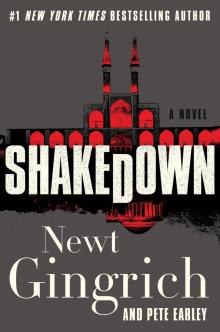 Shakedown
Shakedown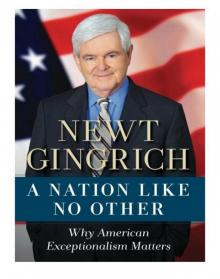 A Nation Like No Other
A Nation Like No Other To Try Men's Souls - George Washington 1
To Try Men's Souls - George Washington 1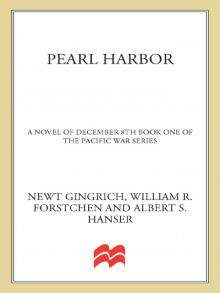 Pearl Harbor: A Novel of December 8th
Pearl Harbor: A Novel of December 8th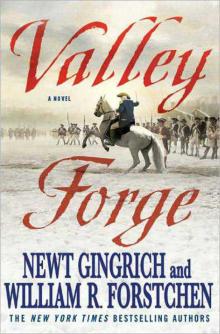 Valley Forge: George Washington and the Crucible of Victory
Valley Forge: George Washington and the Crucible of Victory To Save America
To Save America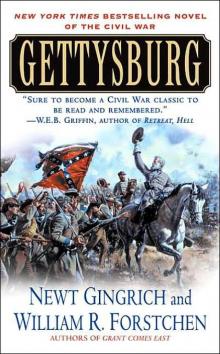 Grant Comes East cw-2
Grant Comes East cw-2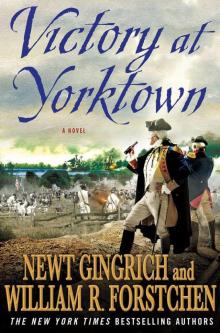 Victory at Yorktown: A Novel
Victory at Yorktown: A Novel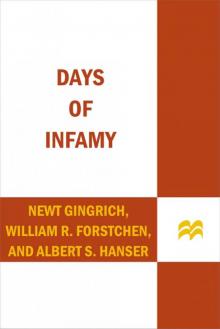 Days of Infamy
Days of Infamy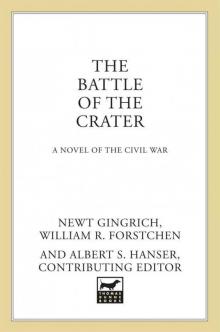 The Battle of the Crater: A Novel (George Washington Series)
The Battle of the Crater: A Novel (George Washington Series)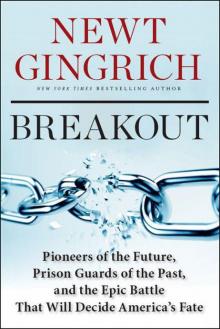 Breakout: Pioneers of the Future, Prison Guards of the Past, and the Epic Battle That Will Decide America's Fate
Breakout: Pioneers of the Future, Prison Guards of the Past, and the Epic Battle That Will Decide America's Fate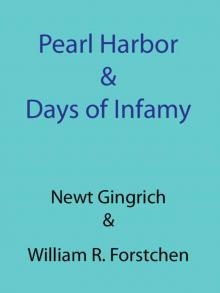 Pearl Harbour and Days of Infamy
Pearl Harbour and Days of Infamy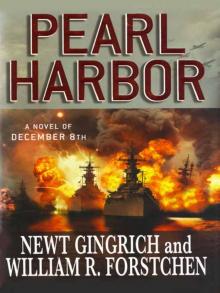 Pearl Harbour - A novel of December 8th
Pearl Harbour - A novel of December 8th Understanding Trump
Understanding Trump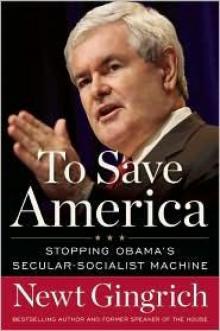 To Save America: Abolishing Obama's Socialist State and Restoring Our Unique American Way
To Save America: Abolishing Obama's Socialist State and Restoring Our Unique American Way